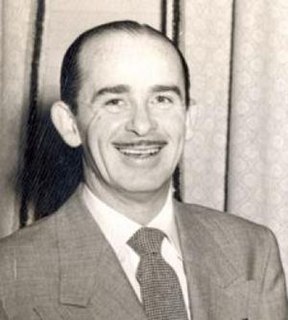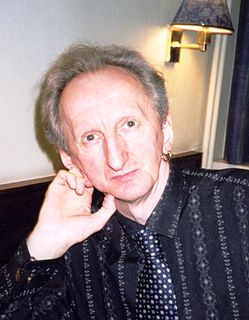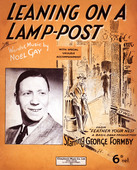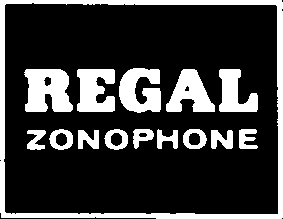
Ned Washington was an American lyricist born in Scranton, Pennsylvania.

Beryl Ingham was the wife and manager of singer/actor George Formby, as well as being a variety performer and champion clogdancer.

David Bret is a French-born British author of show business biographies. He chiefly writes on the private life of film stars and singers.

No Limit is a 1935 British musical comedy starring George Formby and Florence Desmond. The film, which was directed by Monty Banks, was made on location at the TT motorcycle race on the Isle of Man. It was the first of eleven films that Formby made with Associated Talking Pictures.

George Formby was an English comedian and singer in musical theatre, known as one of the greatest music hall performers of the early 20th century. His comedy played upon Lancashire stereotypes, and he was popular around Britain. His nickname, "The Wigan Nightingale", was coined because of the way he would use his bronchial cough as a comedic device in his act.

"When I'm Cleaning Windows" is a comedy song performed by Lancastrian comic, actor and ukulele player George Formby. It first appeared in the 1936 film Keep Your Seats, Please. The song was credited as written by Formby, Harry Gifford and Frederick E. Cliffe. Formby performed the song in Ab in Keep Your Seats, Please. For the single release, the key was changed to Bb.

Spare a Copper is a 1940 British black-and-white musical comedy war film directed by John Paddy Carstairs and starring George Formby, Dorothy Hyson and Bernard Lee. It was produced by Associated Talking Pictures. It is also known as Call a Cop. The film features the songs, "I'm The Ukulele Man", "On The Beat", "I Wish I Was Back On The Farm" and "I'm Shy". Beryl Reid makes her film debut in an uncredited role, while Ronald Shiner appears similarly uncredited, in the role of the Piano Mover and Tuner.

Turned Out Nice Again is a 1941 British comedy film directed by Marcel Varnel and starring Lancashire-born George Formby.
Fred Godfrey was the pen name of Llewellyn Williams, a World War I songwriter. He is best known for the songs "Take Me Back To Dear Old Blighty" (1916) and "Bless 'Em All" (1917), a 1940s hit recorded by George Formby that can be found on many war films.
"Bless 'Em All", also known as "The Long and the Short and the Tall" and "Fuck 'Em All", is a war song. The words have been credited as being written by Fred Godfrey in 1917 to music composed by Robert Kewley. It was first recorded by George Formby, Jr. in 1940.
Arthur Le Clerq was a British songwriter from the 1930s, responsible for several, mainly novelty, hits. These included:

Feather Your Nest is a 1937 British musical comedy film directed by William Beaudine and starring George Formby, Polly Ward and Enid Stamp-Taylor.
Eddie Latta was the songwriting name of Bruce Alfred Williams, a Liverpool undertaker who wrote songs for the Lancashire film actor and music hall artist George Formby, among others.

"Leaning on a Lamp-post" is a popular song written by Noel Gay and best known in the version by George Formby.

The English comic, singer and actor George Formby performed in many mediums of light entertainment, including film, radio and theatre. His career spanned from 1915 until December 1960. During that time he became synonymous with playing "a shy, innocent, gauche, accident-prone Lancashire lad".
By the Shortest of Heads was a 1915 British film starring George Formby as a stableboy who outwits a gang of villains. It was Formby's first film; he was aged ten at the time. The film is now considered lost, with the last-known copy having been destroyed in 1940.
"On the Wigan Boat Express" is a comic song written by George Formby, Harry Gifford and Frederick E. Cliffe. Formby recorded it on 4 August 1940 for Regal Zonophone Records. It tells the story of a boat train express heading for Formby's hometown of Wigan in Lancashire. Like several other of Formby's songs, it maintains a running joke that Wigan is a seaside town rather than an inland, industrial centre with a “pier” on the Leeds and Liverpool Canal. It is filled with the sort of sexual innuendo that was a hallmark of Formby's songs.
"The Emperor of Lancashire" is a 1941 comic song written by Roger MacDougall for the British comedian George Formby. In it Formby boastfully proclaims about his future success that will one day make him Emperor of the English county of Lancashire. It is filled with a number of references to Lancashire dialect and culture.
"The Isle of Man" is a song written by George Formby, Harry Gifford and Frederick E. Cliffe. It was recorded by Formby on 28 November 1935 for Regal Zonophone Records. It was released with “Riding in the TT Races", both of them songs from the Isle of Man-set Ealing Studios comedy film No Limit which had been Formby's breakthrough screen role.












